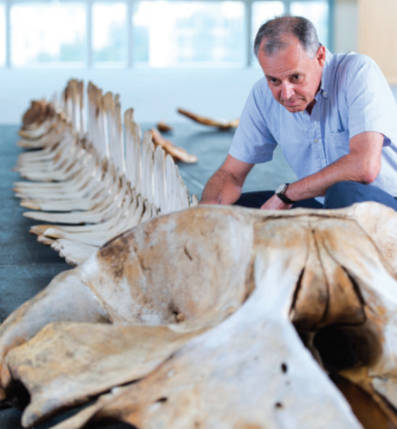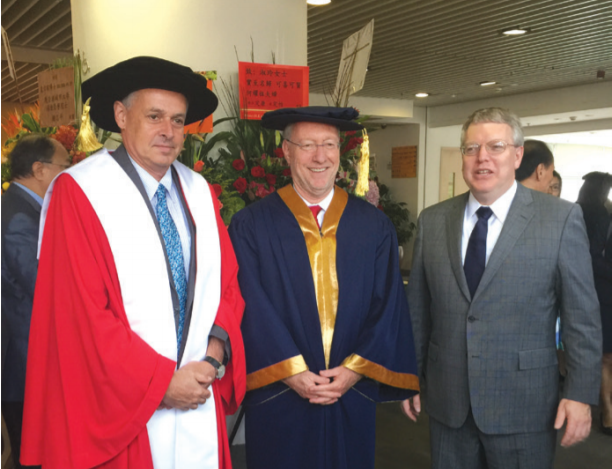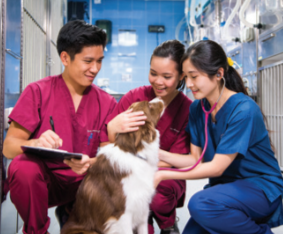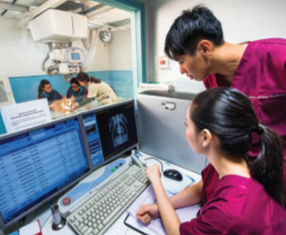Professor Michael Philipp Reichel, Dean of the School of Veterinary Medicine (SVM), discusses the unique contribution that the School is set to make in safeguarding the health of Hong Kong and beyond.
Q: How will Hong Kong’s first School of Veterinary Medicine contribute to a “healthier planet”?
A: Over 70% of new and emerging infectious diseases are potentiallyzoonotic, that is, naturally transmitted from animals to humans. WhileHong Kong has two medical schools, a dental school, and trains its ownpharmacists, the lack of a veterinary counterpart means there is a hugegap in our knowledge about infectious diseases. CityU’s School ofVeterinary Medicine aspires to play a major role in filling this void byinforming and defending the community against such diseases.
Combined human, veterinary and environmental research capabilities,known as the “One Health” concept, will lead to a better understandingof interactions in these areas and contribute to a healthier planet.Veterinary input and major disease-control management programmeshave resulted in the successful eradication of many zoonotic diseases,such as bovine brucellosis and tuberculosis, hydatid disease and rabiesfrom many areas of the world.
Q: How are animal, environmental and human welfare interconnected in the “One Health” concept?
A: Take the recent outbreaks of Ebola in Africa and Middle East Respiratory Syndrome (MERS) in the Middle East and South Korea for example. These diseases have flared up in recent times as the natural balance of ecosystems is being disrupted. I think we can expect more such events in the future. Studying these types of diseases will hopefully lead to a better understanding of them, what disrupts the balance between wildlife and human populations and why outbreaks occur. This in turn will help us to know how to restore the natural balance and to prevent these events from happening in the first place.
Q: What plans does the School have for nurturing veterinary professionals?
A: The School, in collaboration with College of Veterinary Medicine at the Cornell University in the US, seeks to become a centreof excellence for animal health in Asia. In doing so, it will contribute significantly to public and animal health, food safety,aquaculture and animal welfare in Hong Kong and the region.
The six-year Bachelor of Veterinary Medicine programme will commence in academic year 2017-18 at CityU and represents amilestone in the development of veterinary education in Hong Kong and the region. The degree programme will promote OneHealth and sustainable development, and expand educational choices and career paths for young people.A Master of Science programme in Aquatic Production and Veterinary Health has been set up in collaboration with the Universityof Stirling in Scotland, UK. In addition, postgraduate research students are already engaged in collaborative studies in cutting-edgebiomedical science under co-supervision by Cornell.
The University has recently acquired the prestigious Peace Avenue Veterinary Clinic in Hong Kong. This will form a significant part of theSVM animal clinical teaching facilities. A veterinary research diagnostic laboratory will be in place by mid-2017 as well.
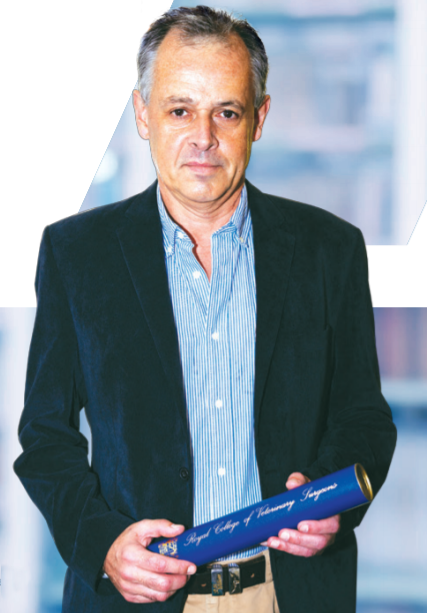
Professor Michael Philipp Reichel has recently been awarded a Fellowship of the Royal College of Veterinary Surgeons (London) for his Meritorious Contributions to Learning.
(Photo credit to: Royal College of Veterinary Surgeons (London))
